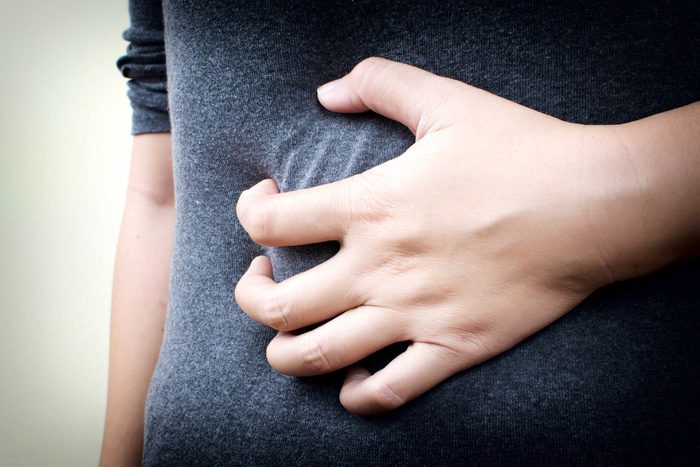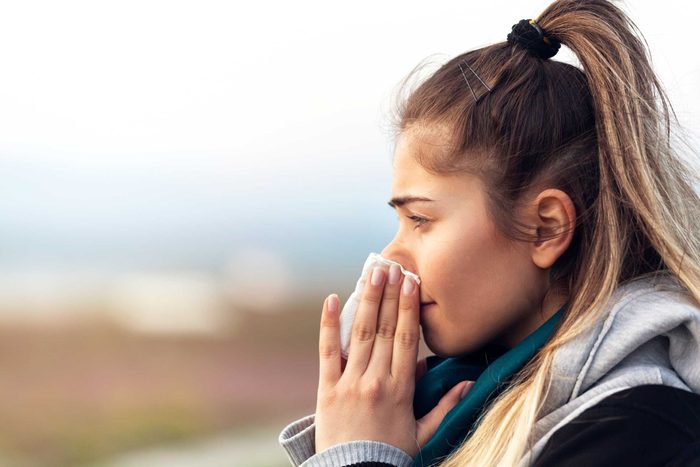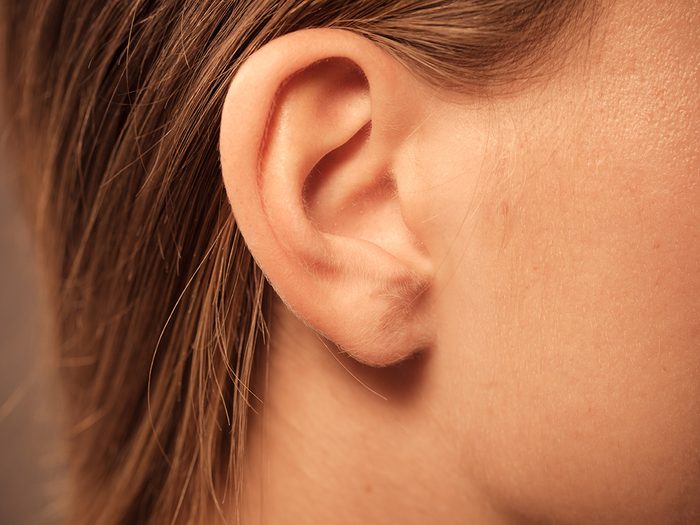
Whooshing in your ears
After a long day, you lay your head down on a pillow and-whoosh. That annoying sweeping sound may be blood passing through the jugular vein and carotid artery, both of which are located behind your ear. The noise becomes noticeable when something (like your pillow) blocks external noise. If the sound is present during the day, allergies or infection could be to blame: A congested Eustachian tube, which links the nose and throat to the middle ear, can muffle external sounds. It will typically clear on its own, but a decongestant may help.

Cracking neck
Don’t worry, all that creaking and cracking doesn’t mean you’re getting old. The neck is a series of paired joints, called facet joints. Each is filled with fluid and surrounded by a capsule. Bending your neck stretches the capsules, which decreases pressure on the joint fluid and causes it to turn into gas; the crack you hear is gas popping out of the joint fluid. Neck cracking is generally not harmful, but see a doctor if you experience pain-especially if it shoots down one arm. This could signal nerve root impingement, a pressure change of the nerve root that causes pain throughout the limb.
(Related: A Guide to Neck Pain Symptoms, Causes, Treatments, and Relief)
Gut rumbling
That odd, gurgling sound you hear after dinner is air and fluid moving through the digestive tract. If you hear grumbling on an empty stomach, your gut may be cleaning out leftover bits of food and fluid. Or, of course, it could be time to eat: When you’re hungry, the brain sends a signal to the intestines that stimulate the same action. If you experience high-pitched noises with cramping, pain, or nausea, but no bowel movements, get it checked out-it could be partial bowel obstruction, which sometimes requires surgery.
Wheezing when you twist
Hear a wheeze during a yoga class twist? Air moving out of the stomach or lungs travels through a narrowed airway when you twist, causing a wheezing sound. It’s not a problem unless you experience difficulty breathing-in this case, it could be indicative of short-term illnesses such as allergies or long-term issues such as chronic obstructive pulmonary disease (COPD).
Queefing
Ladies, you have likely experienced a fart-like noise exiting your vagina. Don’t blush-it’s a very normal result of air pockets moving out of the vagina. (FYI: Expelling gas from the rectum, on the other hand, happens due to bacterial activity in the gut.) Queefing is likely to occur during intercourse and exercise, activities that displace air inside of the vagina. Luckily, queefing is completely harmless and has no medical consequences.
(Related: 9 Totally Not Weird Questions You Should Ask Your Gynecologist)

Popping shoulder
If reaching for the top cabinet causes a loud pop, you may have an inflamed shoulder joint. Repetitive overhead movements, like dusting high shelves, can lead to inflammation in the bursa (the small fluid-filled sac) between the rotator cuff tendons and the shoulder blade tip, resulting in a pop. The sound usually disappears by itself. Pain with popping, however, could indicate a tear in the cartilage along the shoulder socket-in this case, see an orthopedist.

Ringing sounds
Ring, ring-no, it’s not your cell, and no, you’re not going crazy. Nearly everyone experiences tinnitus, or ringing ears, at some point in their life. Infections, very loud noise, and aging can damage hair cells in the ear, causing the cochlea (a sense organ that translates sound into nerve impulses) to send signals to the brain even when sound is not present. The issue typically resolves itself, but if a phantom sound lasts more than two days or you also experience pain, see a doctor, who may test you for infection or neurological issues.
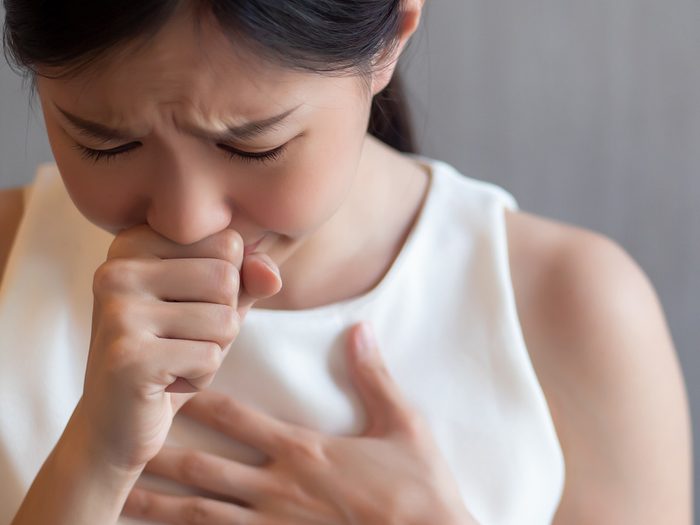
Hiccups
Thank your diaphragm, the muscle beneath the lungs that helps you breathe, for the loud “hic!” sound that appears at the most inopportune moments. When the diaphragm contracts involuntarily, the top of your windpipe closes immediately, causing the common hiccup noise. Eating too quickly, drinking too much alcohol, or taking certain medications have been associated with hiccups, though the exact cause is still unclear. Unlike other uncontrollable reflexes such as sneezing or coughing, there is no clear, useful purpose for hiccups. Short bouts are harmless, but persistent hiccups that last for more than 48 hours should be evaluated. This could be a sign of an underlying medical condition.
(Related: How to Get Rid of Hiccups, Once and for All)
Whistling in your nose
If you’d rather not whistle while you work (or breathe), a squeaky nose can be a major annoyance. It is typically a sign of airflow obstruction, which may mean excess mucus is covering the nasal passages. A decongestant (for a cold) or an antihistamine (for allergies) can help clear out the gunk. See a doctor if you experience whistling after nasal trauma. It could be a tear in the cartilage between the nostrils, which is usually repairable.
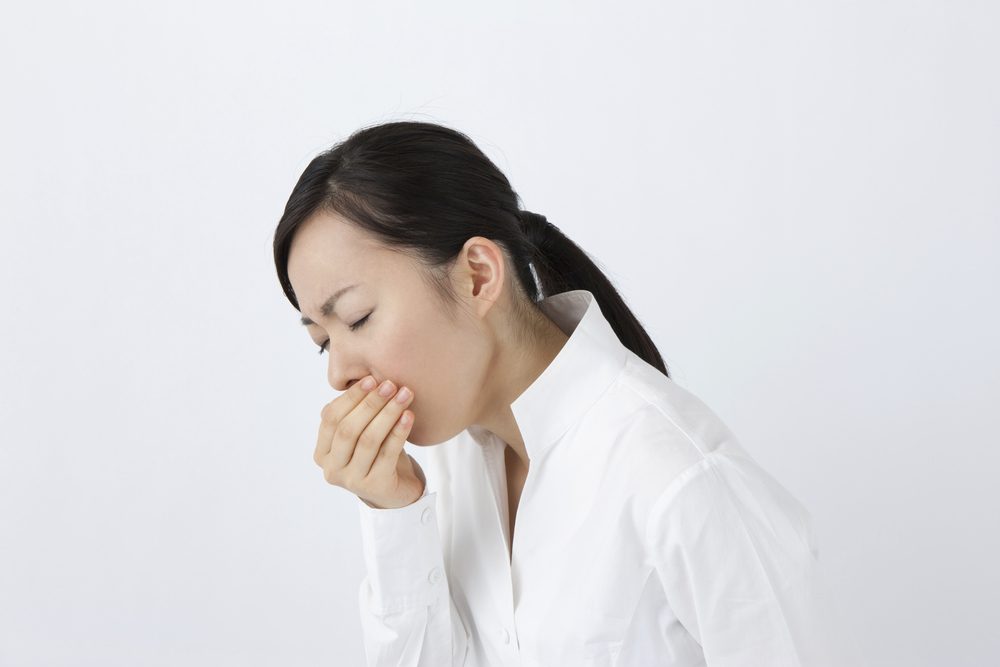
Wheezing with coughing
Cough, cough, wheeze. If this sounds familiar, you could have asthma. Allergens inflame the airway, squeezing the muscles around it and leaving you short of breath. If you experience coughing and wheezing only at the gym, you may have exercise-induced asthma. See a doctor whenever you experience coughing and wheezing together, or if you have a cough that lasts for more than four weeks or wakes you up at night (which could be signs of untreated asthma or acid reflux).
Next: 9 Questions About Menopause You’ve Been too Embarrassed to Ask
